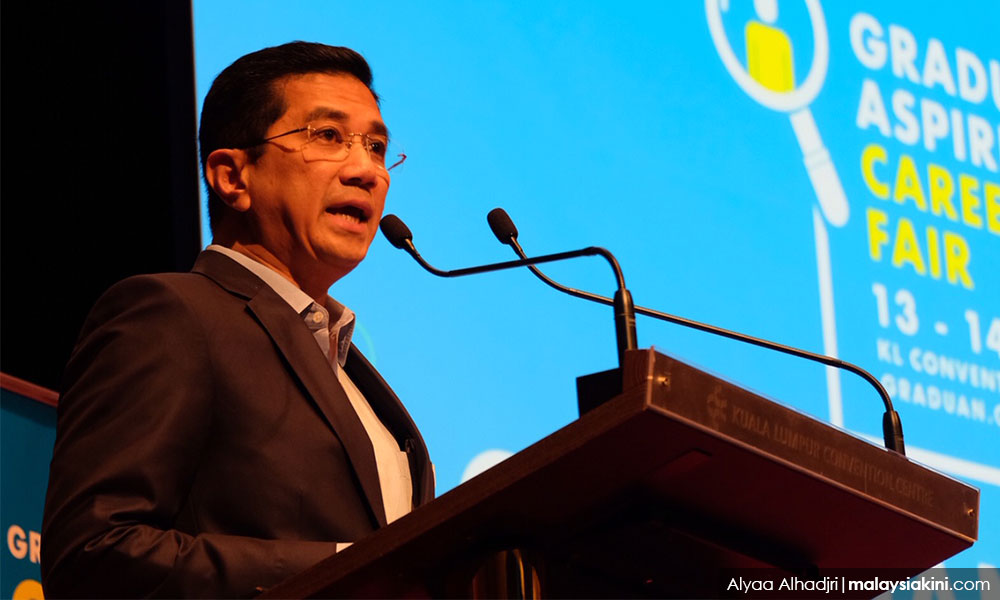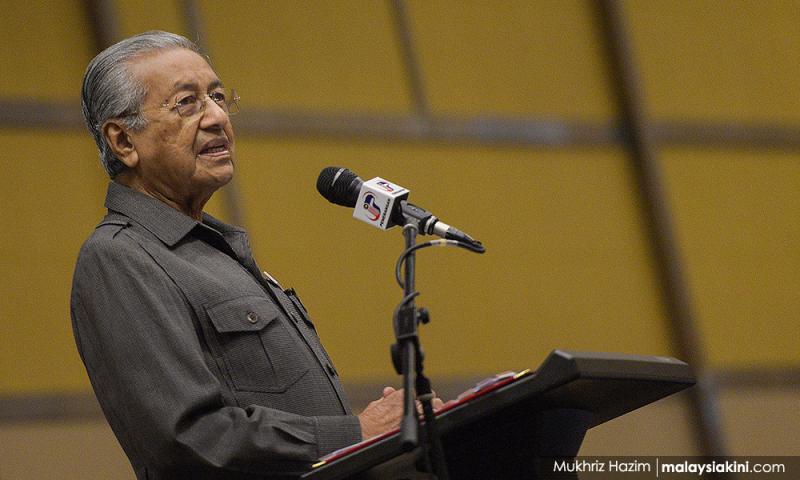Prime Minister Dr Mahathir Mohamad said the government will study the claim made by United Nations human rights experts over the rate of poverty in the country.
“We will study what they say to find out whether it is true or not,” he told reporters when met after attending the MyPerintis 4th Anniversary and fundraising dinner tonight.
The UN special rapporteur on extreme poverty and human rights, Prof Philip Alston, was reported as saying that official figures on poverty in the country which currently is recorded at 0.4 per cent of the total households in 2016, or 24,700 households, were vastly inaccurate and do not reflect realities on the ground.
Alston was quoted as saying that official numbers relied on outdated measures, with the poverty line remaining at the same level for decades despite increasingly high costs of living.
Asked whether the government will change its method of measuring poverty after the claim was made, Dr Mahathir said: “If it is necessary we will.”
Meanwhile, Economic Affairs Minister Mohamed Azmin Ali said Malaysia stands by its absolute poverty rate,
"This poverty rate is derived from internationally-accepted standards based on the Canberra Group Handbook on Household Income Statistics, Second Edition (2011), which is published by the United Nations," he said in a statement here today.
It was reported that Prof Alston claimed that Malaysia has "significant poverty" and that its true poverty rate is about 15 per cent.

Mohamed Azmin explained that the Poverty Line Income (PLI) used to derive this poverty incidence is currently set at RM980 at the national level and calculated based on the basic requirements for a household to live healthily and actively, which is more than the PLI targeted in the Sustainable Development Goal 1 at US$1.25 per day.
This PLI, he said, is also higher for Sabah, at RM1,180, and Sarawak, RM1,020, to take into account additional costs such as transportation.
“However, at the implementation level, especially when disbursing assistance, a household’s PLI takes into account its location, household size and other demographic factors.
“This may result in a higher household PLI than the national PLI. Hence, assistance is tailor-made according to the needs of the recipients, based on the profiling through the eKasih system which is an innovative initiative by the government to identify the right target group," he said.
Azmin slams comments as irresponsible
Mohamed Azmin said that as such the assertion made by Prof Alston that there is “a statistical sleight of hand that has nefarious consequences” is wholly unacceptable and irresponsible.
He said that while the government appreciates the effort by the special rapporteur in raising awareness on issues of poverty, certain comments are baseless and uncalled for.
"For instance, the assertion that a “sizable part of Malaysia’s population struggles to get by with tenuous access to food, shelter, education and healthcare ...”, is both misconceived and erroneous, clearly lacking empirical evidence and rigorous scientific procedures," he said.
Mohamed Azmin said the government is committed to addressing the remaining pockets of poverty and deprivation across regions and communities, and is not oblivious to the rising cost of living faced by Malaysians, especially the bottom 40 per cent of income (B40) group.
To further increase the effectiveness of poverty eradication initiatives, he said, the government is reviewing its PLI methodology to better reflect the current cost of living.
“In addition, a Multidimensional Poverty Index (MPI) has been established to measure a wider scope of deprivation beyond the income dimension as currently practised. The indicators of MPI are also being reviewed to better reflect the social mobility of households,” he said.
Mohamed Azmin said that on humanitarian grounds, the government has always been collaborating with the United Nations High Commission for Refugees and its partners in providing access to basic needs as well as the provision of skills, education, livelihood and healthcare to enable the refugees to take care of themselves in Malaysia.
- Bernama






